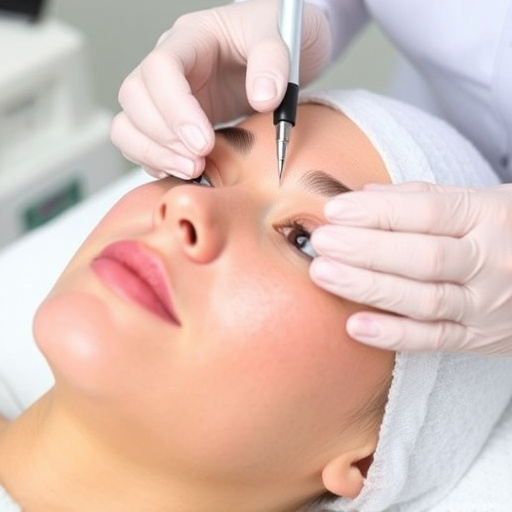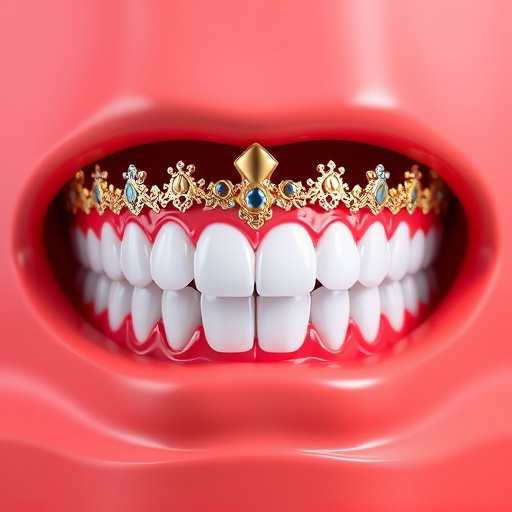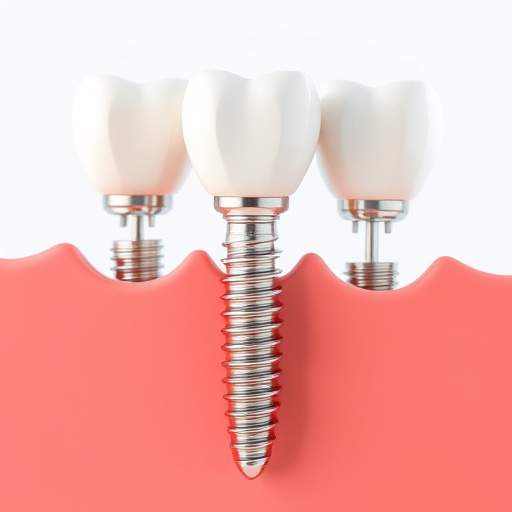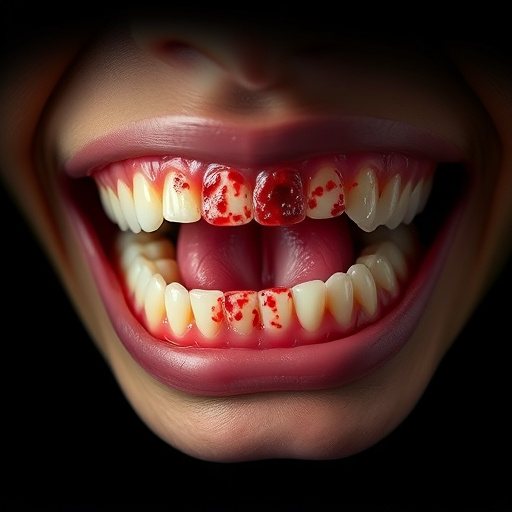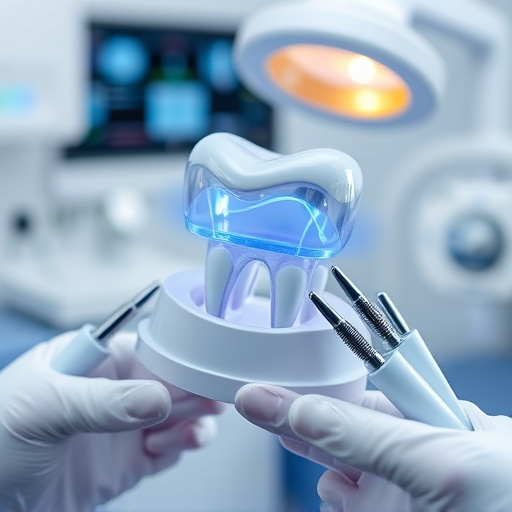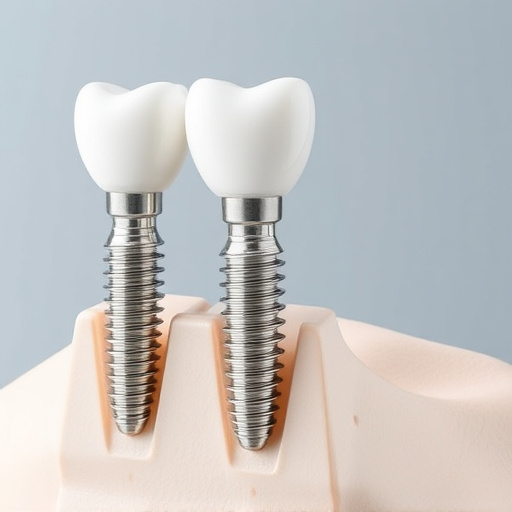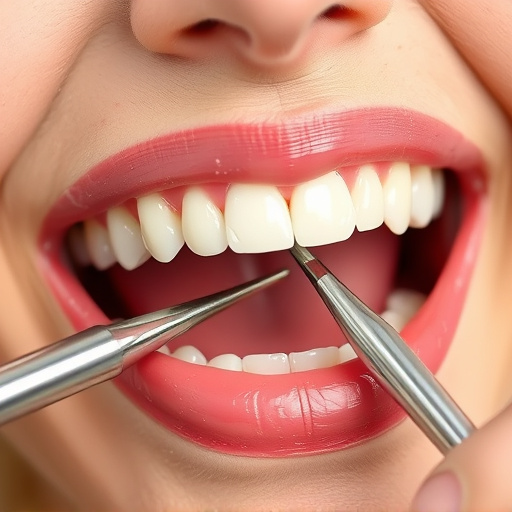Snoring, impacting millions globally, disrupts sleep due to blocked or narrowed upper airway. Health risks include hypertension, diabetes, and cognitive impairment. Diverse snoring treatment options exist, from lifestyle changes to advanced procedures like extractions or clear aligners, aiming to prevent obstruction for improved sleep. Effective management requires comprehensive evaluation addressing sleep position, muscle tone, and conditions like obstructive sleep apnea (OSA). Understanding causes enables healthcare providers to recommend tailored treatments enhancing sleep quality and well-being.
Are you tired of restless nights due to snoring? Understanding snoring goes beyond its disruptive nature; it’s a symptom of underlying sleep issues. This comprehensive guide explores snoring treatment options, starting with unravelling its causes and impact on sleep quality. We’ll take you through a full sleep evaluation process, followed by an in-depth look at available treatments designed for a peaceful night’s rest. Discover how to reclaim your calm slumber.
- Understanding Snoring: Causes and Impact on Sleep Quality
- Evaluating Sleep: Diagnosing the Root of Snoring Problems
- Available Treatment Options for a Peaceful Night's Rest
Understanding Snoring: Causes and Impact on Sleep Quality
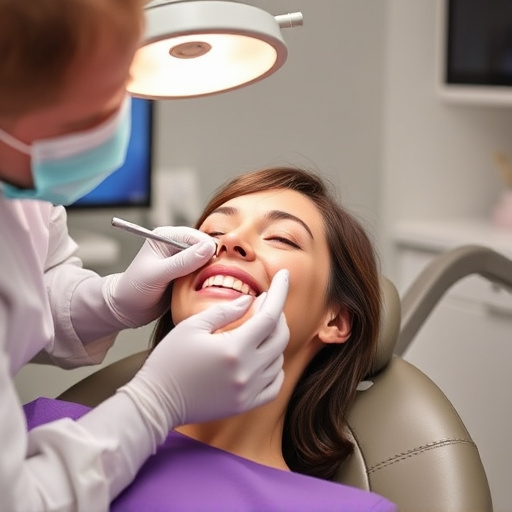
Snoring is a common sleep disorder that affects millions worldwide, often characterized by the harsh sound produced during breathing while asleep. It occurs when the upper airway becomes blocked or narrowed, causing turbulent air flow and vibrations in the soft tissue of the throat. This disruptive process can have significant consequences for overall sleep quality. Not only does it fragment the sleep cycle, leading to frequent awakenings, but it can also result in decreased oxygen levels and increased strain on the heart and lungs.
The impact of snoring extends beyond the individual sleeper, affecting partners and family members alike. Chronic snoring is associated with various health issues, including hypertension, diabetes, obesity, and cognitive impairment. Fortunately, there are numerous snoring treatment options available that can address the root causes and restore peaceful slumber. From behavioral changes and oral appliances to advanced procedures like tooth extractions or clear aligners, these methods aim to prevent the obstruction of the upper airway, ensuring a more tranquil sleep environment.
Evaluating Sleep: Diagnosing the Root of Snoring Problems

Snoring is a common sleep disorder that can have significant impacts on overall health and quality of life. Evaluating sleep patterns and diagnosing the root cause are crucial steps in determining effective snoring treatment options. A comprehensive sleep evaluation involves assessing factors such as sleep position, muscle tone, the presence of specific medical conditions like obstructive sleep apnea (OSA), and even dental issues.
One less common but notable factor to consider is wisdom tooth removal, which can alleviate snoring in some individuals due to its impact on the upper airway. In cases where snoring persists despite lifestyle changes, consulting a general dentistry professional for an emergency dental care check-up might be advisable. Understanding these underlying causes enables healthcare providers to recommend suitable snoring treatment options, ranging from oral appliances and behavioral modifications to more complex procedures, ensuring better sleep and improved overall well-being.
Available Treatment Options for a Peaceful Night's Rest
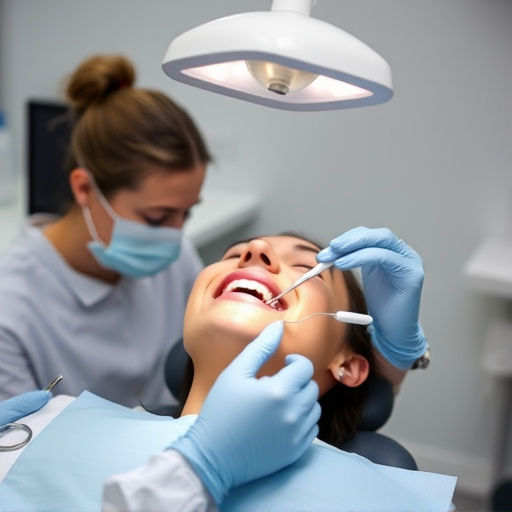
Snoring can disrupt both your quality of sleep and that of those around you, but there are numerous snoring treatment options available to reclaim a peaceful night’s rest. The first step is often a simple change in lifestyle habits such as maintaining a healthy weight, avoiding alcohol and smoking, and adopting a consistent sleep schedule. For more severe cases, oral appliances designed to keep the airway open during sleep can be highly effective. These devices are custom-fitted and comfortable, making them a popular choice for many.
In addition to these non-invasive methods, surgical interventions like radiofrequency ablation or laser therapy can target specific tissues causing snoring. For those dealing with underlying structural issues like a narrow airway or soft palate, more advanced procedures may be necessary. While emergency dental care isn’t typically needed for snoring, preventive dentistry plays a crucial role in maintaining overall oral health and addressing any related breathing problems. Even cosmetic fillings can sometimes be part of a broader solution if certain areas contribute to snoring.
Snoring can significantly impact sleep quality and overall well-being, but with a comprehensive understanding of its causes and available treatment options, it is possible to find relief. A full sleep evaluation is essential in diagnosing the root issues behind snoring, allowing for personalized treatment plans that range from lifestyle changes to advanced therapies. By exploring these snoring treatment options, individuals can finally bid farewell to restless nights and embrace a peaceful slumber.


